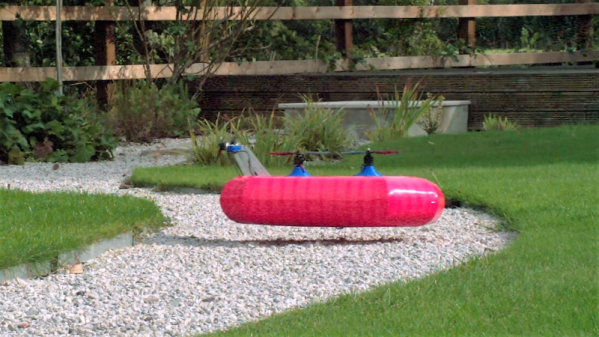Leaving no stone unturned in his quest for alternative and improbable ways to generate lift, [Tom Stanton] has come up with some interesting aircraft over the years. But this time he isn’t exactly flying, with this unusual Coandă effect hovercraft.
If you’re not familiar with the Coandă effect, neither were we until [Tom] tried to harness it for a quadcopter. The idea is that air moving at high speed across a curved surface will tend to follow it, meaning that lift can be generated. [Tom]’s original Coandă-copter was a bit of a bust – yes, there was lift, but it wasn’t much and wasn’t easy to control. He did notice that there was a strong ground effect, though, and that led him to design the hovercraft. Traditional hovercraft use fans to pressurize a plenum under the craft, lifting it on a low-friction cushion of air. The Coandă hovercraft uses the airflow over the curved hull to generate lift, which it does surprisingly well. The hovercraft proved to be pretty peppy once [Tom] got the hang of controlling it, although it seemed prone to lifting off as it maneuvered over bumps in his backyard. We wonder if a control algorithm could be devised to reduce the throttle if an accelerometer detects lift-off; that might make keeping the craft on the ground a bit easier.
As always, we appreciate [Tom]’s builds as well as his high-quality presentation. But if oddball quadcopters or hovercraft aren’t quite your thing, you can always put the Coandă effect to use levitating screwdrivers and the like.
Continue reading “Coandă Effect Makes A Better Hovercraft Than A Quadcopter”











